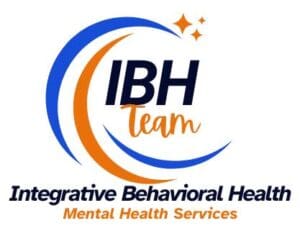As the seasons change, many people notice shifts in their mood and energy levels. For some, these changes can significantly impact mental health, leading to conditions such as Seasonal Affective Disorder (SAD) or exacerbating existing mental health issues. Understanding the connection between seasonal changes and mental health can help you take proactive steps to maintain your well-being year-round.
1. The Impact of Seasonal Changes on Mental Health
a. Reduced Sunlight and Mood
Shorter days and reduced sunlight in the fall and winter months can disrupt your circadian rhythm, leading to changes in sleep patterns and mood. Lower sunlight exposure also decreases serotonin production, which can contribute to feelings of sadness or depression.

b. Seasonal Affective Disorder (SAD)
SAD is a type of depression that occurs at specific times of the year, typically during the fall and winter. Symptoms include low energy, difficulty concentrating, changes in appetite, and feelings of hopelessness. While less common, some people experience SAD during the spring or summer months.
c. Weather and Activity Levels
Cold or rainy weather can limit outdoor activities, leading to a more sedentary lifestyle. Reduced physical activity can negatively affect mental health, as exercise is a natural mood booster.
d. Allergies and Irritability
Spring and summer can bring allergies for some individuals, which are linked to fatigue, irritability, and difficulty focusing. The physical toll of allergies can also impact mental well-being.

2. How to Manage Seasonal Changes and Protect Your Mental Health
a. Light Therapy
Light therapy involves using a special lamp that mimics natural sunlight to combat the effects of reduced sunlight exposure. It’s particularly effective for managing symptoms of SAD and can be used for 20-30 minutes daily.
b. Maintain a Routine
Establishing a consistent daily schedule can help regulate your body’s internal clock. Aim for regular sleep, meal, and exercise times to stabilize your mood and energy levels.
c. Stay Active
Physical activity boosts serotonin and endorphin levels, improving mood and reducing stress. Try indoor exercises during colder months or bundle up for a brisk walk outdoors to maximize exposure to natural light.
d. Prioritize Nutrition
Eating a balanced diet rich in fruits, vegetables, whole grains, and lean proteins supports both physical and mental health. Foods high in omega-3 fatty acids, such as salmon and walnuts, are particularly beneficial for mood regulation.

e. Practice Mindfulness and Stress Management
Mindfulness techniques, such as meditation or deep breathing exercises, can help you stay grounded and reduce anxiety. Journaling or practicing gratitude can also shift your focus to positive aspects of your life.
f. Seek Social Connections
Isolation during the colder months can worsen feelings of loneliness or depression. Make an effort to connect with friends, family, or support groups, even if it’s through virtual means.
g. Consider Professional Help
If seasonal changes significantly impact your mental health, consult a mental health professional. Therapy, counseling, or medication can provide additional support to manage symptoms effectively.
3. Proactive Steps for Seasonal Transitions
- Prepare Ahead: As a new season approaches, anticipate potential challenges and create a plan to address them.
- Adapt Your Environment: Brighten your living space with natural light or use warm, cozy elements to create a comforting atmosphere.
- Monitor Your Mood: Keep a journal to track how seasonal changes affect you and identify patterns over time.
Seasonal changes are inevitable, but their impact on mental health doesn’t have to be overwhelming. By understanding the ways seasons influence your well-being and taking proactive steps, you can maintain balance and resilience throughout the year. Remember, it’s always okay to seek help if you’re struggling. Your mental health matters every season.



